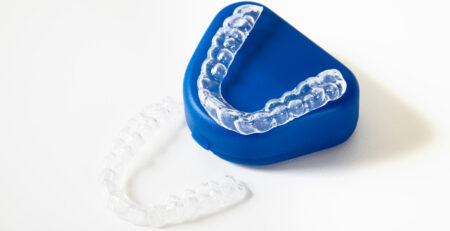When Tooth Pain Becomes Unbearable
Tooth pain has a strange way of sneaking up. One minute, it’s just a slight twinge when sipping cold water; the next, it’s a throb that stops you in your tracks. Some try to tough it out, hoping it’ll fade. But there’s a line between minor discomfort and a true dental emergency—and knowing where that line is can save your smile and your sanity.
Clear Signs Your Toothache Needs Immediate Attention
A toothache that doesn’t quit isn’t something to ignore. When pain lasts longer than a day or two and interferes with eating, sleeping, or even thinking clearly, it’s time to take action. Persistent, deep pain often points to something more serious than a simple cavity. This type of discomfort usually means the nerves inside the tooth are inflamed or infected, and the longer it’s left untreated, the worse it gets.
Other clear signs include swelling, fever, or a foul taste in your mouth. These aren’t just annoying side effects—they’re your body’s way of waving a red flag. The tooth might look normal on the outside, but inside, an infection could be brewing. Waiting it out only increases the chance of more damage or even spreading infection. A visit to the dentist could mean the difference between saving the tooth and needing it pulled.

Pain Triggers That Signal an Urgent Dental Issue
Tooth pain that flares up when you chew or bite down often means something’s cracked or loose. This kind of sharp pain isn’t about sensitivity—it’s mechanical. Something inside the tooth may be shifting or pressing on nerves. If it hurts to eat or even to touch the tooth with your tongue, you’re likely dealing with damage that won’t fix itself.
Another warning sign is pain that gets worse with hot drinks but eases with cold. That strange reversal points to nerve problems that require urgent care. The nerves inside your teeth are incredibly sensitive, and when inflamed, they react strongly to temperature. Ignoring this kind of pain often leads to more invasive treatments down the road.
Hidden Dental Abscesses Causing Sudden Pain Spikes
Dental abscesses often start silently. You might not notice anything until the pain suddenly becomes intense. This spike happens because pus builds up beneath the tooth or in the gums, putting pressure on nerves and tissue. The pain can feel sharp, pulsing, or even radiate to your jaw and ear. If your cheek swells or you feel pain when touching the side of your face, an abscess may be the culprit.
What makes abscesses especially dangerous is how quickly they can spread. Infection from a single tooth can move into your jaw, sinuses, or even bloodstream. This isn’t just about oral health—it’s about overall wellness. A strong immune system won’t always stop the spread, especially if the infection goes deep. Recognizing the signs early and getting treatment quickly helps prevent serious complications.
Identifying Tooth Sensitivity That Escalates Fast
Tooth sensitivity often feels mild at first—maybe a quick zing from cold water or ice cream. But if that sensitivity becomes more frequent or starts to last longer, it might not be surface-level anymore. Pain that lingers could signal enamel loss or exposed nerves. And once nerves are involved, pain can ramp up fast, especially if bacteria sneak in.
Another clue that things are getting worse is sensitivity in multiple teeth. This could mean gum recession or underlying infection. It’s easy to dismiss sensitivity as just something to live with, but when it escalates quickly or spreads, a dentist’s evaluation becomes necessary. Early intervention can prevent further erosion and avoid painful procedures later.

Sudden Jaw Pain Linked to Severe Tooth Problems
Jaw pain doesn’t always start at the jaw. Often, it begins with a deep tooth issue that radiates outward. The jaw joint and surrounding muscles can become inflamed when a tooth nerve is irritated. This pain might feel like tightness, clicking, or even sharp jolts when chewing. If it comes on quickly, a dental problem may be to blame—not the jaw itself.
In some cases, jaw pain masks the real issue. Patients may think they have TMJ or sinus pressure when in reality, a damaged or decaying tooth is putting pressure on the surrounding structures. Dentists often find that one problematic molar can set off pain across the whole side of the face. Getting checked by a professional helps pinpoint the exact source and avoids unnecessary guessing.
Why Lingering Gum Swelling Means Trouble
Swollen gums may seem like a minor annoyance, especially if they don’t hurt much at first. But swelling that doesn’t go away or gets worse is often a sign of infection beneath the surface. This type of inflammation usually signals gum disease or an issue with a nearby tooth. The gums may look red, feel tender, or bleed slightly when brushed.
Another sign to watch for is puffiness that only affects one part of the mouth. This often means the problem is localized, possibly from an abscess or deeply lodged food particle. Dentists can remove the cause and prevent it from becoming something more severe. Ignoring swollen gums can result in tooth loss or bone damage over time.
Nighttime Toothaches That Demand Prompt Dental Care
Tooth pain that wakes you up or keeps you from falling asleep is more than a nuisance. Pain tends to feel worse at night because the body lies flat, increasing blood pressure to the head and intensifying inflammation. What was a dull ache during the day becomes throbbing and sharp in the stillness of night. If the pain is bad enough to interrupt sleep, it’s likely severe enough to require a dentist’s attention.
Nighttime pain also hints at infection or deep nerve involvement. These aren’t issues that improve on their own. Waking up from tooth pain isn’t just uncomfortable—it’s your body signaling that something deeper is wrong. It’s important to get it checked before the issue grows into something more complicated.
Struggling With Tooth Pain That Won’t Quit? Let Lumina Dental Help You Get Relief Sooner Than You Think
Tooth pain doesn’t follow business hours. It doesn’t wait for a convenient time or go away with over-the-counter painkillers. It disrupts meals, sleep, and focus—taking a toll on your daily life. If you’ve hit that point where the pain is affecting how you eat, sleep, or speak, it’s time to get real help from professionals who treat pain seriously and compassionately. At Lumina Dental, patients receive fast, expert care from a team that understands both urgency and comfort.
Ignoring dental pain never makes it go away—it just gives it time to get worse. Whether it’s an infection, abscess, or nerve damage, the sooner it’s treated, the more options you have and the less invasive it may be. Lumina Dental focuses on getting patients the answers and relief they need without delays. From advanced imaging to gentle treatment, everything is designed to get you smiling again without the wait. Contact us now to book your appointment and take the first step toward a pain-free life.











